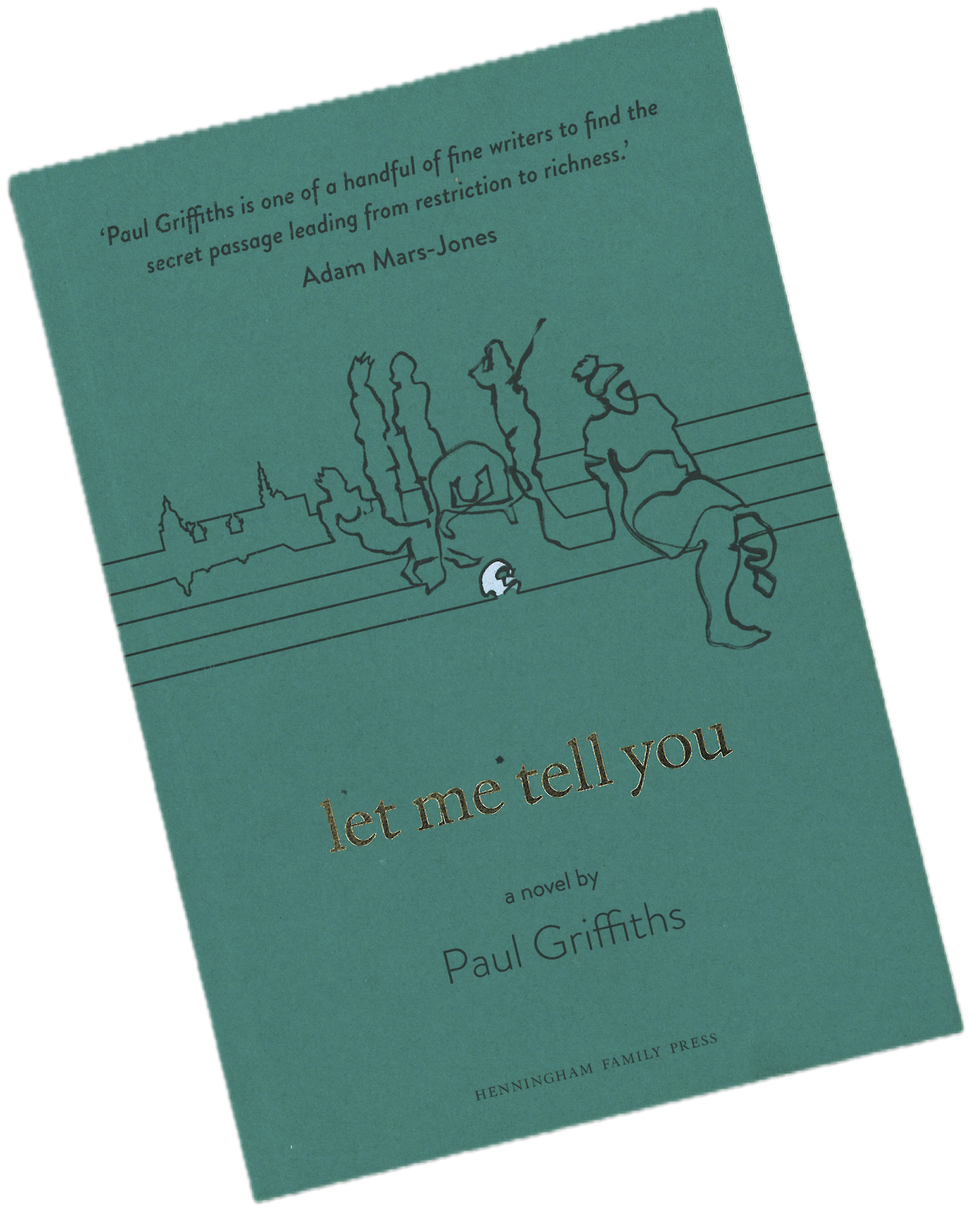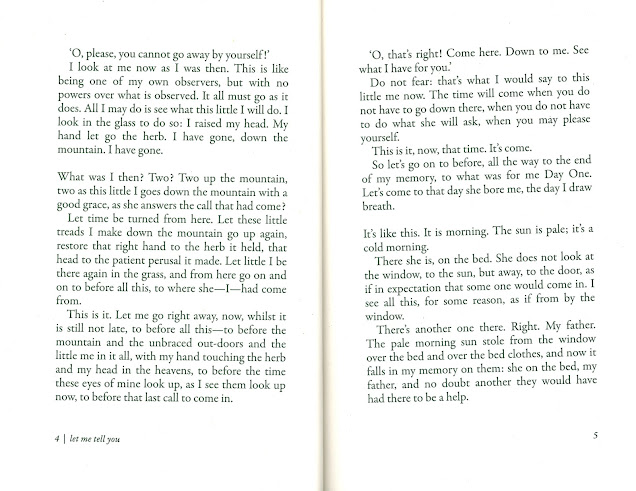Paul Griffith's let me tell you is an experimental novel. The back cover of my edition puts it best: "Ophelia uses the words Shakespeare gave her to tell her own story. Her account flows solely from the 481 words she speaks in Hamlet. This constraint hints at Ophelia's struggle against the limits placed upon her by her father, brother, Hamlet, and Shakespeare."
As a concept, it's intriguing and telling. Writing a novel using only the words Hamlet uses in Hamlet would not be nearly as limiting.
As a novel, it's interesting . . . but also tedious. And perhaps that's part of the point. We're just not given enough Ophelia to have a full and complete sense of her full and complete identity.
The voice of the novel is undeveloped in a dreamy, wistful sense. I can't quite tell if this Ophelia is on the verge of madness, already mad, or childishly innocent.
I found three things in particular curious. First, I knew the concept before picking up the novel. I expected to find Ophelia from page one. But even here, in a novel that tells something of Ophelia using only the words she's given in Hamlet, someone else has the first word. We have this page of introduction from "The King":
The second curious thing was the developing understanding of Ophelia's view of her mother. She doesn't speak the word "mother" in the play, so in the novel, her mother is called she or the other. They don't seem to have much of a relationship at all, and what there is is negative. She's much closer to her brother and to the maid they had. A section of the first chapter will illustrate this.
The last thing to strike me is Ophelia's connections to Hamlet. As hard as it is to pin Ophelia's character down in this novel, it seems even harder for Ophelia to arrive at any substantial and lasting conclusions about Hamlet.
I'm glad I read let me tell you. It's haunting, and it's quite an achievement to tell so much of a story (or so many stories) with such a limited vocabulary. But, perhaps inescapably given the limitations, it's less robust than I had hoped it would be. And I don't think I'll be reading let me go on, its sequel.
Click below to purchase the book from amazon.com
(and to support Bardfilm as you do so).
(and to support Bardfilm as you do so).




















No comments:
Post a Comment